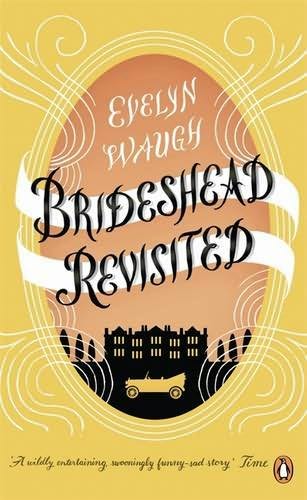Today, Jack Thornton fills in for Ellyn von Huben (who is currently in New Zealand speaking at the NZ Eucharistic Congress!) to introduce the next Word on Fire Book Club selection: Evelyn Waugh’s Brideshead Revisited.* Pray for Ellyn, and be sure to take a look at Jack’s comments on this tremendous Catholic novel. The original selection for this month was Ron Hansen’s Exiles, which has been moved to next month, when Ellyn returns. Thank you for understanding!
Published in 1945, Evelyn Waugh’s Brideshead Revisited is widely considered one of the greatest novels of all time with publications such as “Time” magazine and “Modern Library” including it in their lists of the 100 greatest English language novels of the 20th Century. But it is not simply a great novel. It is a great Catholic novel.
Through the eyes of Charles Ryder, Waugh, himself a Catholic, examines the personalities and stories of a deeply flawed yet fundamentally intriguing Roman Catholic aristocratic family with an emphasis on the workings of divine grace and its effects on the different members of the family. The variety of reactions to Catholicism within this novel is a part of what gives it its great worth. Rather than write a bland, uniform attitude towards religion, Waugh presents a colorful, varied and rich depiction of both rejection and acceptance of faith of all types— from the agnostic narrator to the devout Lady Marchmain. Some characters gladly accept their faith, other reject it with varying results. Depression, addiction, anger, fear, suffering, joy, love, romance and magnanimity accompany the terrific struggle for faith and the difficult road to conversion, which all the characters tread. Both the pious believers and the rigorous non-believers present strengths and weaknesses stemming from their journey down this road.
As you read, pay close attention to the images and signs that hint towards the conversion or rejection of conversion on the part of the family and the narrator, especially the ones that are not explicit. The entire story and every scene within it is a step on the path to the great decision every character faces: whether they will accept divine grace or reject it. Each reacts to this decision differently, but the inevitability of this moment of decision is evident in every scene and image.
At the center of this novel is the Chestertonian metaphor of the fisherman and his line. In Waugh’s own words: “The Roman Catholic Church has the unique power of keeping remote control over human souls which have once been part of her. G.K. Chesterton has compared this to the fisherman’s line, which allows the fish the illusion of free play in the water and yet has him by the hook; in his own time the fisherman by a ‘twitch upon the thread’ draws the fish to land.” Look for the threads.
This is a terrific novel, beautifully written and deeply compelling. For those who have not read it, I highly recommend it. For those who have already experienced its delights, pick it up again. You will find something new.
